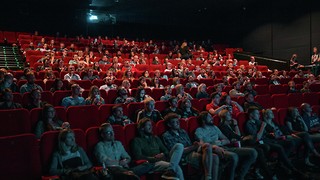Interview: Rowan Williams, Archbishop of Canterbury
In his first interview with a student journalist and only his second since Lambeth Palace announced his resignation, the Archbishop of Canterbury, Rowan Williams, talks exclusively to Varsity about his move to Cambridge.
Last Friday the Archbishop of Canterbury announced his resignation to become the Master of Magdalene College, Cambridge in January 2013. While most of the press assess, debate and contest his effectiveness within the Church of England, I meet with him at the twentieth anniversary celebration of Springfield Church, Wallington, to discuss his future prospects.
Williams, now 61, has decided that ten years in the job is long enough for anyone to remain under the spotlight in such a demanding role. “I always said that ten years was a reasonable amount of time because you don't have quite as much energy after such a long time in a very demanding role. Also, we're beginning to get ready for the next Lambeth conference, which is five or six years ahead. I had five years to prepare for it- and that was by no means too long. I’m very keen that my successor should therefore have a good run in for that.”
What the Archbishop is perhaps slightly less famous for is his outstanding career as an academic. He was appointed professor of divinity at the young age of 36, his latest publication was a book on the Russian author Dostoevsky and he also writes poetry. I ask him why he decided to return to Cambridge: “partly because we were asked. Magdalene approached me and I felt that it would be a good idea to let my name go forward. But also of course my wife and I have a long history with Cambridge. My wife was a Cambridge graduate as well and that’s where we were married. I also worked in a parish there and taught for nine years in the University and theological college. We have great affection for the place. I go there for lots of personal reasons as well as to be with the many academic friends I have there.“
"I also do appreciate what an academic community can be. I have been very happy with the colleges that I have been a part of in the distant past. I like to help to make such communities work- to help people to get on with each other and to make it a place that feels welcoming. Obviously the experience of national and international work and contacts will feed in one way and another. I hope I will be able to do a little bit of teaching and will enjoy doing a little bit of outreach for the college as well as their ambassador. I'm very fond of school visits- I hope that I will be able to go to some of those.”
Having been outside of the university for twenty years, I wonder if his approach to academia might have been shaped or altered. “Clearly some things have change regarding my perspectives and my assumptions. I don't know exactly what will have changed until I get there I suppose. It might possibly change the sorts of things I will want to research or write about. I suspect I might be a little less enthusiastic about writing about forth century Syriac manuscripts. I may want to pursue the sort of work that I've had to develop recently on the nature of secularism in our society and things like that. “
Despite his clear enthusiasm for his future role at Cambridge and the admittance that there are certainly gruelling aspects to his current role, there will be things he will be reluctant to let go of. “I will certainly miss the regularity of informal contact with schools and young people. Also, one of our big priorities in the last couple of years has been setting up an international network of Anglican development agencies. It’s been quite hands on- we worked on issues such as education, childcare and the developing third world. I hope I will be able to keep some contact with all that. Such things have been tremendously inspiring and stretching and unfortunately won’t be a part of my life in quite the same way."
Finally, he looks forward to working closely with students at Cambridge. “I hope that Cambridge students are still able to feel that their time there is a time to flourish as human beings and not just to clock up on qualifications. That they'd get a strong sense that they have grown as people in that environment, which is partly what the college community is for. That they wouldn’t see their education simply as a matter of ticking a lot of boxes to get jobs but that they see it as a real opportunity to explore. I think this applies right across the board, whether you are doing sciences or humanities.”
 News / Tompkins Table 2025: Trinity widens gap on Christ’s19 August 2025
News / Tompkins Table 2025: Trinity widens gap on Christ’s19 August 2025 Comment / A plague on your new-build houses18 August 2025
Comment / A plague on your new-build houses18 August 2025 News / Pro-Palestine activists spray-paint Barclays Eagle Labs18 August 2025
News / Pro-Palestine activists spray-paint Barclays Eagle Labs18 August 2025 News / Pro-Palestine activists urge new Chancellor to ‘condemn Israel’20 August 2025
News / Pro-Palestine activists urge new Chancellor to ‘condemn Israel’20 August 2025 News / Trinity sells O2 Arena lease for £90m12 August 2025
News / Trinity sells O2 Arena lease for £90m12 August 2025









